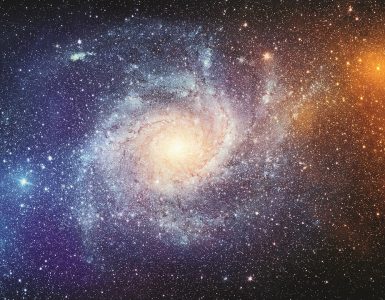New technology, products, tools, factories and production lines. These are all achievements that contribute to the continuing development of our world. But where did they all come from? What were the origins of these amazing achievements? And have we actually benefitted from them?
One quick glance at the environment and at the ever-changing way of human life from the past right up until today is enough to confirm that the incorporation of technology and advanced industry into daily life has brought certain disadvantages alongside the increased benefits. All those achievements began with one of the greatest events in human history, the Industrial Revolution. But what exactly was the Industrial Revolution?
Known as the First Industrial Revolution, it heralded a significant change in production, agriculture and transportation starting from 1760 and continuing into the 1820s, 30s and 40s. It began in Britain and spread to Europe and America. It is called a revolution because manual methods of production were replaced by machines. The most significant breakthroughs of this era were the development of new chemicals and novel methods of iron production, the increase in the use of steam and water, the construction of new machines and tools ,and the appearance of the first mechanical factories. The symbol of the First Industrial Revolution is the steam engine.
The Second Industrial Revolution, also known as the Technological Revolution dates from the end of the 19th century. Technological advancement was made possible with the appearance of new sources of energy such as electricity, gas and oil, which offered an alternative form of combustion for engines and appliances.
The Third Industrial Revolution, known as the Digital Revolution, began in 1969. It heralded a new era in the development of electrical and engineering technology brought about by their conversion from analogue to digital. This revolution gave us electronic systems with transistors and small processors as well as the beginnings of digital telecommunications and computers. These new technologies led to the production of innovative materials that opened new doors to science, especially for space research and biotechnology.
The Fourth Industrial Revolution is unfolding before our eyes. It began at the beginning of the 21st century with the spread of the Internet. It is the first industrial revolution to be based on modern technology, namely digitalisation, rather than on the appearance of a new form of energy. Digitalisation gives us the opportunity to build a new virtual world, through which we can navigate the real one. This era has also seen the appearance of new technology in the fields of robotics, artificial intelligence, blockchains, nanotechnology, quantum computing, biotechnology, IoT and unmanned vehicles. It is a true revolution of the entire system of production, management and administration, affecting every industry in every country.
Due to all the changes brought about by these successive industrial revolutions, both the planet and humankind have been subject to dramatic transformation. Specific interests and influences accompany each type of technology, and there have been consequences not just on the environment – climate change for example – but also on people’s way of life. Changes that have brought improvement to human society have given us countless promises for a better future and an easier life.
The Industrial Revolutions were amongst the greatest events in human history at any given time. Each one signalled huge progress, but one of the most significant has been in the area of modern technology, which has made our lives easier and faster. Young people are the first to have to learn how to deal with this huge mass of information and knowledge. The challenge that each generation faces is how to familiarise itself with the relevant technology in order to create new tools for generations yet to come.
However, as human beings we need to answer a few questions: Have all these efforts and achievements occurred to make our lives simpler or to allow us to control the environment and the forces of nature? Has the aim been to acquire greater strength and power over other people or to build a weapon strong enough to allow man to dominate the universe? What do you think?







Add comment